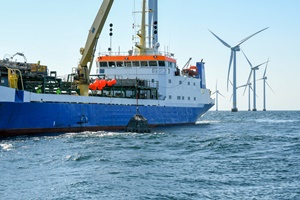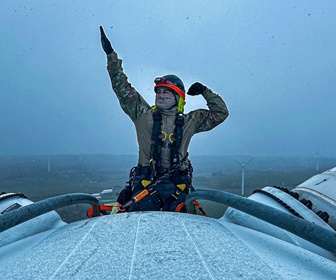 RWE is investigating how artificial reefs at offshore wind farms in the Baltic Sea can affect the marine ecosystem and whether they can create an attractive marine habitat, particularly for blue mussels, algae, and fish species.
RWE is investigating how artificial reefs at offshore wind farms in the Baltic Sea can affect the marine ecosystem and whether they can create an attractive marine habitat, particularly for blue mussels, algae, and fish species.
In partnership with Linnaeus University and cable service provider Baltic Offshore Kalmar AB, RWE is conducting a pilot study in the Swedish Baltic Sea. After months of preparation, collection of water samples, and seabed assessments, the study has entered its practical phase with the installation of artificial reefs at RWE’s Kårehamn wind farm (48 MW, 16 turbines) 7 km off the Swedish coast.
A total of 180 carbon-neutral, plastic-free reef cubes have been deployed on the seabed to assess how marine life is settling here. The research is planned to continue until 2026. The reef cubes were designed and manufactured by ARC Marine, a supplier of nature-inclusive solutions.
The study began in 2023 with the collection of information for the baseline scenario. This included a survey of the underwater area, sampling from the seabed, and eDNA sampling to assess the ecosystem and identify the species in the region, such as mussels, vegetation, and fish. By understanding the biodiversity, the team could predict the possible impacts of the subsequent project phases more effectively and plan accordingly.
During the installation, 180 reef cube structures of different sizes, ranging from 15x15 cm to 75x75 cm, were submerged on the seabed at Kårehamn wind farm. The location was selected due to the previously observed development of species on the foundations of the wind turbines. The intention is to create artificial reefs for habitats and species to grow and hide in, with a special focus on macroalgae, blue mussels, and various species of fish.
In the colonisation phase from 2024 to 2026, the submerged cubes and the surrounding ecosystem will be examined.










